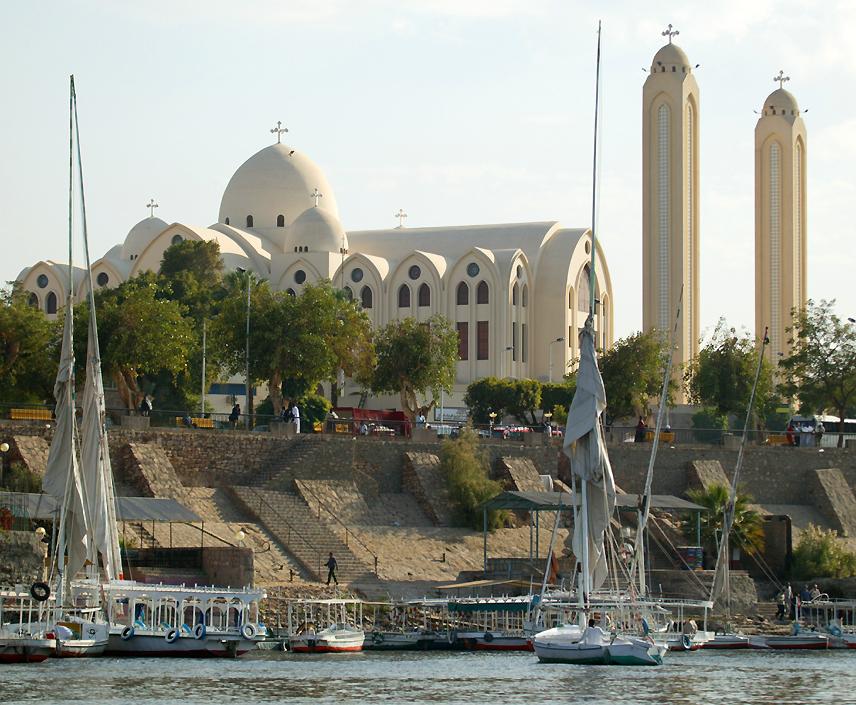 Egypt's Copts were among the world's first Christians, and their church boasts enduring ties to the faith's earliest days.
Egypt's Copts were among the world's first Christians, and their church boasts enduring ties to the faith's earliest days.
The land of Egypt was prominent in the Old Testament Scriptures. According to the Coptic tradition, Egypt also played an important role in the life of Jesus himself. Jesus and his parents, Mary and Joseph, sought refuge in Egypt from persecution at the hands of Judea's King Herod. They remained in exile for nearly four years, a span believed to roughly coincide with the period between Jesus' birth and Herod's death. Soon after Jesus' own death, the Apostle Mark is believed to have spread word of the new faith to Jewish and Greek communities of cosmopolitan Alexandria around A.D. 43. According to Coptic sources, he may have died in the A.D. 68 revolt by Alexandrian Jews against authorities after the Romans attempted to impose idols and statues in the Jewish places of worship. The Roman emperor Trajan annihilated that city's Jewish population in retaliation, an event that may have helped Alexandria's growing (and thereafter largely Greek) Christian community gain prominence.
In the third century, persecution of Christians was rampant across the Roman Empire, including Egypt. The modern Coptic Church dubs the later decades of the century the Era of Martyrs.
Yet Christianity survived and thrived. The famous School of Alexandria housed many great authors and thinkers who helped shape the Christian church that was then coalescing from a variety of disparate ideas.
The Coptic language is directly descended from ancient Egyptian and employs a Greek alphabet. Many priceless ancient texts were written in Coptic, such as numerous Nag 'Hammadi writings and the surviving copy of the Gospel of Judas.
The Coptic tongue lives today only among scholars and as the liturgical language of the Coptic Church, though Arabic is used predominately in services.
The patriarch of Alexandria, who resides in Cairo, heads the modern Coptic Church. Many Coptic Christians reside in Ethiopia and Eritrea, in addition to Egypt.
www.nationalgeographic.com










Aucun commentaire:
Enregistrer un commentaire